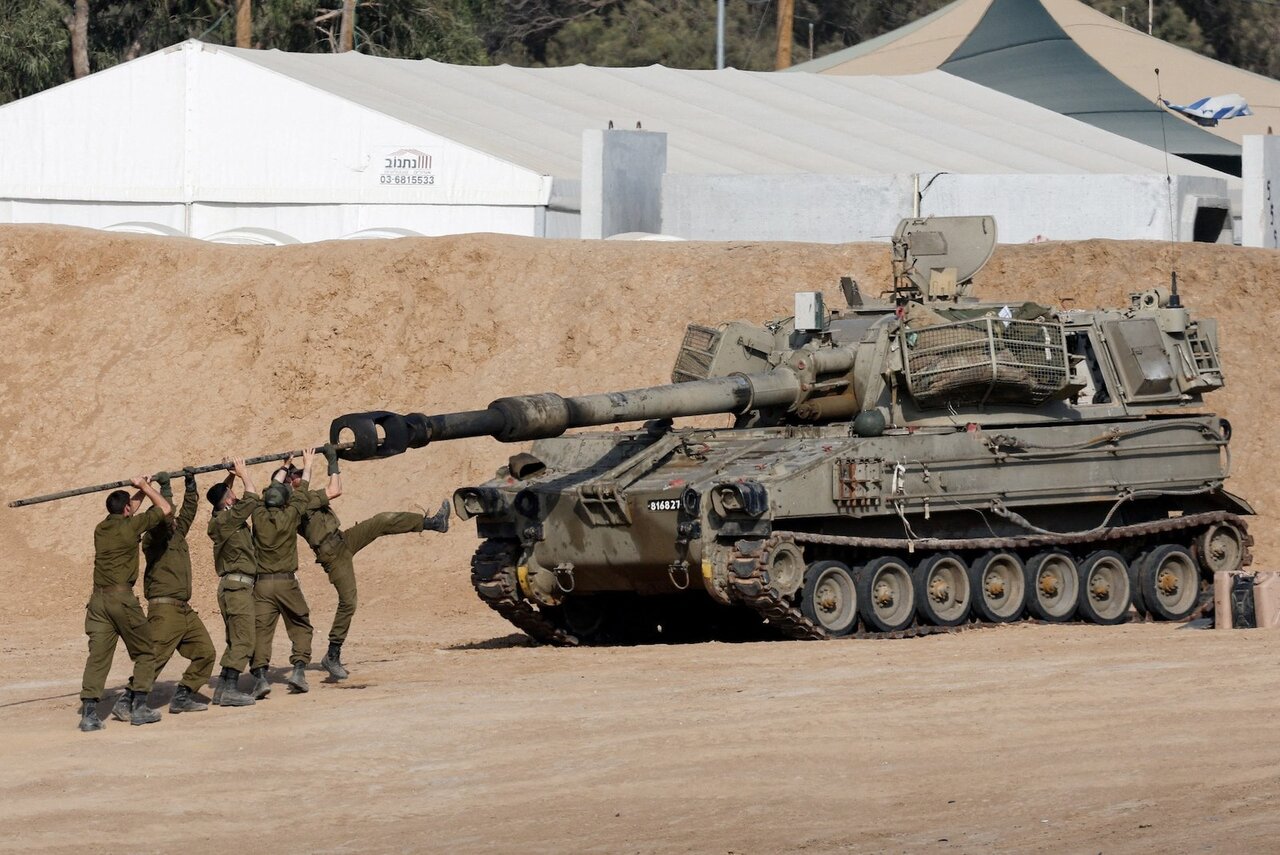Netanyahu butchering in Rafah to survive
Reports suggest Egypt may scrap Camp David Accords over Rafah invasion

TEHRAN- Israeli Prime Minister Benjamin Netanyahu faces growing isolation, domestic scrutiny and an erosion of trust among Western allies as ongoing military action in the Gaza Strip shows little signs of any success.
Making matters worse for the Israeli premier, reports have surfaced indicating a high level of frustration among authorities in Egypt and suggesting that Cairo may consider scrapping the Camp David Accords over the U.S. failure to pressure the Israelis to avoid any ground offensives in Rafah.
The Israeli occupation forces (IOF) has taken control of the Gaza border crossing with Egypt in Rafah, dividing the city in half and obstructing the entry of what was already a small trickle of aid that had been entering the enclave via Rafah.
Israeli media says Egyptian officials have relayed a message to CIA director William Burns to also pressure Tel Aviv to re-engage in negotiations for a truce to end the regime’s unprecedented assault on civilians.
The Camp David Accords were a series of security agreements signed in 1978 between the Israelis and the Egyptians.
The IOF has expanded operations in Rafah, which U.S. President Joe Biden had previously set as a red line. Netanyahu’s cabinet has now trampled all over that line, which has, in turn, made Biden come across as being a weak leader in the eyes of the international community.
As the IOF prepares to invade central Rafah, Palestinians have been forced to flee the southernmost city in the hundreds of thousands after being forced to flee from the north to the south seven months ago by the Israeli military.
Now Palestinians are fleeing to the north of Rafah. They cannot return to northern Gaza as the IOF is locked in fierce battles with the armed wing of Hamas in the same areas of the north including Jabalia and Zeitoun that Israeli leaders declared victory over the Palestinian resistance late last year.
After seven months of bombardment and ground operations, Tel Aviv is back to square one fighting the Palestinian resistance in the north. The same regions the Israeli military started bombing on October 7 for around 20 days before sending ground troops in.
Hebrew media has reported more casualties among Israeli troops in the south as well as the north of Gaza, where reports also suggest warplanes are carpet bombing some of the regions.
Considering the small size of Gaza and the density of the population - housing over 2.2 million - there is no safe areas for Palestinian families to travel to in what was widely described as the world’s largest open-air prison, before October 7.
Some families have moved from one area of the Strip to another at least seven times now, squatting in unsanitary makeshift tents.
Israel’s degrading behavior toward Palestinian civilians has been highlighted once again.
UNRWA estimates that since last week around 300,000 people have fled Rafah, saying, “The forced and inhumane displacement of Palestinians continues. There is nowhere safe to go”.
In a statement, Volker Turk, the UN high commissioner for human rights warned, “I can see no way that the latest evacuation orders, much less a full assault, in an area with an extremely dense presence of civilians, can be reconciled with the binding requirements of international humanitarian law and with the two sets of binding provisional measures ordered by the international court of justice.”
Israeli diplomats have noted that if Tel Aviv does not recognize the Hamas-led Palestinian government in Gaza and continues massacres against women and children, it could pave the way for a regional war in the Middle East.
The problem essentially lies with the Israeli occupation itself that has dug a hole in Gaza, under Netanyahu’s government orders, that it cannot find a way to come out alive.
Tel Aviv also faces widening challenges from the West that include growing distrust of Netanyahu and his ministers who look like they have no strategies in Gaza except a vengeance against the entire civilian population because of the Netanyahu regime’s security and intelligence failures on October 7.
As Netanyahu seeks to ensure his own survival, 600 Israeli families of captives held in Gaza have said this is political brinkmanship. Other families have said they don’t want their children to fight and get killed for corrupt leadership in Tel Aviv.
Protesters have once again poured their anger on the streets with footage showing Israeli forces violently arresting the family members of captives and soldiers killed in the enclave.
Rafah, as was widely expected, has become the pressure cooker for Netanyahu, who is struggling to cling on to his rule with every passing day.
Leave a Comment